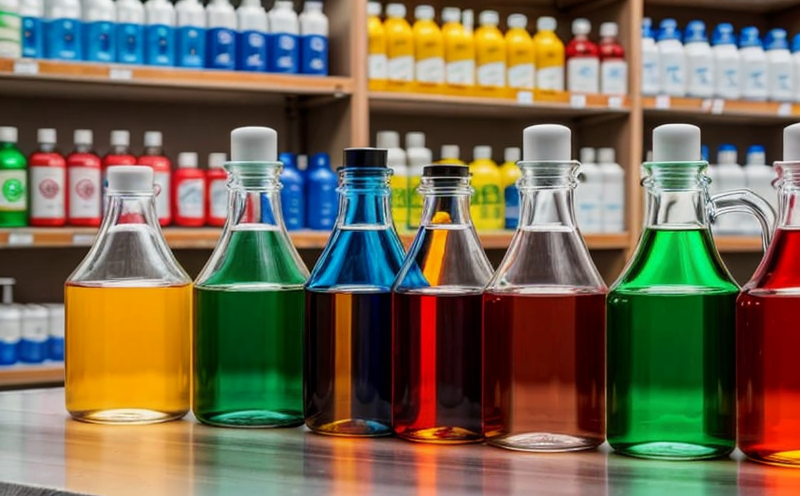ZDHC MRSL compliance analysis of fabrics and garments
Ensuring that your textiles are compliant with the Zero Discharge of Hazardous Substances (ZDHC) MRSL is critical in today’s market. The ZDHC MRSL, a global initiative aiming at eliminating hazardous chemicals from the supply chain, has become essential for brands and manufacturers seeking to protect human health and the environment.
The process involves rigorous chemical testing that adheres to strict international standards such as ISO 17025, ASTM D834, EN 16948, and others. This service ensures your fabrics and garments meet these stringent requirements by identifying any restricted substances and their concentrations.
Our team of experts will analyze samples from various stages of production, including raw materials, intermediate products, and finished goods. We use advanced instrumentation like GC-MS (Gas Chromatography-Mass Spectrometry) and LC-MS/MS (Liquid Chromatography-Tandem Mass Spectrometry) to ensure accurate detection levels down to the parts per million.
Preparation of samples for analysis is crucial. This involves cutting precise pieces from garments or fabrics, ensuring that they are representative of the entire batch. The samples must be free from any external contaminants and processed in a controlled environment to prevent cross-contamination.
The testing process itself can take several days depending on the complexity of the sample and the number of substances being analyzed. Our laboratory ensures timely delivery by optimizing workflows and using state-of-the-art equipment. Upon completion, detailed reports are generated which include not only the test results but also recommendations for corrective actions if any non-compliance is found.
Understanding the implications of ZDHC MRSL compliance goes beyond mere legal requirements; it’s about maintaining brand reputation and consumer trust. Non-compliance can lead to significant financial losses due to product recalls, lawsuits, or even market withdrawal. By partnering with us early in your production cycle, you can avoid these pitfalls and stay ahead of regulatory changes.
Our team stays updated on the latest developments within the ZDHC framework, ensuring that our services are always aligned with current standards. We offer comprehensive training sessions to help your quality managers understand the nuances of MRSL compliance better. Additionally, we provide consultancy services for integrating these practices into your existing processes.
For those looking to expand their product range or enter new markets, ZDHC MRSL compliance is often a prerequisite. Our service plays an integral role in facilitating entry into these markets by providing robust evidence of compliance. This not only opens doors but also enhances customer confidence and loyalty.
Applied Standards
The analysis for ZDHC MRSL compliance follows the guidelines set forth in several international standards:
- ZDHC MRSL - This is the core document that defines which substances are restricted or prohibited.
- ISO 17025 - Laboratory accreditation ensuring competence and quality of testing services.
- ASTM D834 - Standard test methods for determining the viscosity of polymers by capillary viscometer.
- EN 16948 - Requirements for chemicals in articles intended to come into direct or prolonged contact with the skin.
These standards ensure that our testing is reliable, consistent, and up-to-date with global best practices. Compliance with these standards also demonstrates commitment to ethical business practices which are increasingly valued by consumers worldwide.
International Acceptance and Recognition
- Australia/New Zealand - Our certifications are recognized by regulatory bodies in Australia and New Zealand, ensuring compliance with local laws regarding hazardous substances.
- European Union (EU) - Compliance with EU regulations ensures that your products meet the stringent requirements set forth by REACH and other related directives.
- United States - Our services are aligned with U.S. Environmental Protection Agency (EPA) guidelines, ensuring compliance across state lines.
- Japan - Recognized by Japanese Ministry of Economy, Trade & Industry (METI), facilitating entry into the Japanese market.
Competitive Advantage and Market Impact
Staying ahead in today’s competitive landscape requires more than just meeting basic regulatory requirements. It involves anticipating trends, understanding evolving standards, and staying compliant at every stage of production.
By leveraging our ZDHC MRSL compliance analysis service:
- You gain a strategic advantage by being among the first to comply with new regulations before they become mandatory.
- Your brand’s reputation is enhanced as customers appreciate your commitment to sustainability and environmental responsibility.
- Market access becomes easier, opening up opportunities in international markets that require stringent compliance measures.
In a world where consumer awareness of sustainable practices is increasing, companies that prioritize MRSL compliance are likely to see higher demand for their products. This not only boosts sales but also helps build long-term relationships with eco-conscious consumers.





